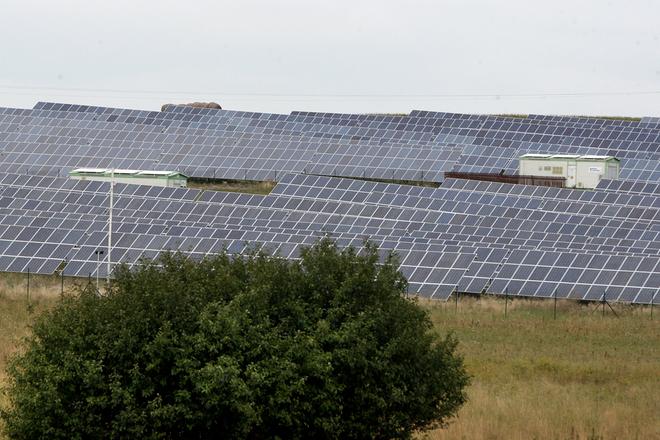The Paris Agreement that the delegates passed at the Paris Conference on December 12 establishes the target to keep the rise in global temperature below 2°C and attempt to limit it to 1.5°C. This is to be achieved based on the action plans that 186 countries including Slovakia had published before the Paris Conference in which they specify how they want to reduce their greenhouse gas emissions.
“The Paris global climate agreement is fundamental for humankind and for the planet,” Environment Minister Peter Žiga, who incidentally faced a no-confidence motion in the parliament on the final day of the Paris Conference, commented. He believes it means “a clear gradual withdrawal from fossil fuels”.
Poor use of renewables
There is a single point where the government and environmentalists speak in unison: fossil fuels should soon be history. Slovakia should cut financial support for the mining and burning of coal, according to Greenpeace Slovakia.
“The government should definitely concentrate more on new green projects and renewables, and it should stop financing old heavy industry,” Greenpeace Slovakia’s spokesperson Miroslava Ábelová told The Slovak Spectator, adding that such a strategy would also bring new challenges for the economy – such as new jobs or possibilities for new interesting projects or investors.
“We definitely have greater potential for sensible and good quality projects than [we are running] today,” Ábelová said, pointing out that Slovakia only has one wind park with four turbines, and another single wind turbine in Ostrá Lúka.
“When it comes to using wind energy, we are ranked second to last in Europe,” Ábelová noted.
Slovakia does have potential for all renewable energy sources except wave energy. For instance, every year, 200-times more solar energy falls on Slovakia’s territory than the country consumes, according to Ábelová. Slovakia also is a superpower with its potential for geothermal energy, but it is not utilised.
Weak commitment
In Paris, Slovakia committed itself together with other EU countries to cut the CO2 emissions by 40 percent by 2030. But Slovakia’s emissions are already dropping, although it is not due to the country’s policy or support of green or renewable energy sources, according to Greepeace Slovakia. They consider Slovakia’s commitments “very weak”, and expect the government, in particular the environment minister, to come up with their own initiative to make the aims more ambitious, Ábelová said.
Ábelová labelled the Paris Agreement “rather unspecific” especially regarding the lowering of emissions.
The sense of the agreement, according to the ministry, is that it works as a tool to gradually build the economy “towards a sustainable and low-carbon future”.
“In the coming years not only Slovakia but also other countries should further specify what steps they intend to take in order to keep the increase of global temperature under 1.5 degrees,” Ábelová told The Slovak Spectator. Slovakia must lower its emissions more significantly if it wants to protect its citizens from the consequences of climate change, she added.
Slovakia to play the negotiator
Within the EU, Slovakia is not a country that would prefer realistic and effective solutions, “it rather attempts to lower several positions on the EU level – as we saw during the talks about defining new emissions standards that should limit the pollution from coal power plants,” Ábelová said.
The government, however, stresses Slovakia’s position in Paris, with an outlook on next year’s climate conference in Marrakesh, where Slovakia as the presiding country will lead the negotiating team of the EU.
Slovakia has actively contributed during the Paris negotiations to the fact that the EU was the strongest engine towards the agreement, the minister says.
“It is important to realise that the agreement itself does not mean an end to the work on the new global climate regime, on the contrary, it is just starting and that is where Slovakia comes in to play an important role,” Minister Žiga said, hinting at the Marrakesh Conference 2016.



 A solar energy array in Slovakia (source: Sme)
A solar energy array in Slovakia (source: Sme)